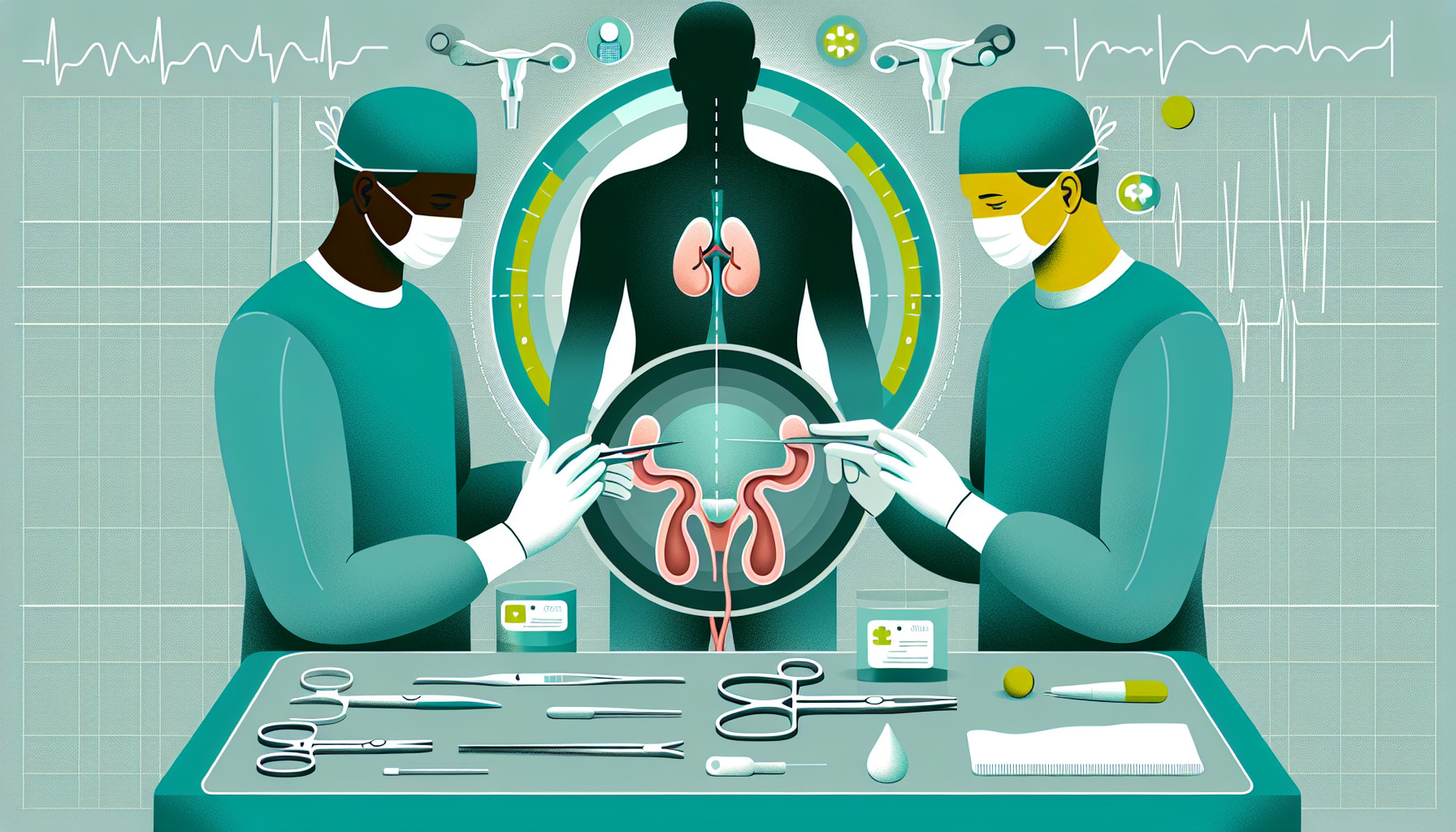Our Summary
This research paper reviews ways to improve the results of a radical cystectomy, a surgery that removes the bladder, in women with bladder cancer. Recent findings suggest that a process called orthotopic urinary diversion (ONB) is a safe option for many women, as it maintains high levels of control over urination during the day and night, and has excellent cancer-related outcomes. This method is even safe for those with limited lymph node disease and trigone involvement, as long as a biopsy or a frozen section analysis rules out cancer.
Furthermore, techniques that spare the nerves have shown promising results. For certain patients with early invasive disease, it’s safe from a cancer perspective to spare the internal genitalia. However, there’s still no generally accepted follow-up scheme after the surgery for checking cancer-related and functional outcomes. More well-designed studies are needed to safely recommend a broader use of surgery that spares the pelvic organs.
FAQs
- What is a radical cystectomy and how can its results be improved for women with bladder cancer?
- What is orthotopic urinary diversion (ONB) and how does it benefit patients undergoing a radical cystectomy?
- What are the potential benefits of techniques that spare the nerves during a radical cystectomy?
Doctor’s Tip
One helpful tip a doctor might tell a patient about cystectomy is to discuss with their healthcare provider the possibility of orthotopic urinary diversion (ONB) as a safe option for maintaining control over urination during the day and night, as well as having excellent cancer-related outcomes. It is also important to consider techniques that spare nerves and internal genitalia if appropriate for the patient’s specific situation. Regular follow-up appointments with healthcare providers are crucial for monitoring cancer-related and functional outcomes post-surgery.
Suitable For
Patients who are typically recommended for a cystectomy include those with bladder cancer that has invaded the muscle of the bladder, those with recurrent or high-grade non-muscle invasive bladder cancer, or those with advanced bladder cancer that has not responded to other treatments such as chemotherapy or radiation therapy. Additionally, patients with certain types of bladder cancer such as squamous cell carcinoma or adenocarcinoma may also be recommended for a cystectomy. Patients who have a history of bladder cancer recurrence or who have a high risk of recurrence may also be candidates for a cystectomy. Ultimately, the decision to undergo a cystectomy is made on a case-by-case basis by a multidisciplinary team of healthcare providers.
Timeline
Before cystectomy:
- Diagnosis of bladder cancer through symptoms, imaging tests, and biopsy.
- Consultation with a urologist to discuss treatment options, including cystectomy.
- Preoperative evaluation and preparation for surgery, including blood tests, imaging scans, and possible chemotherapy or radiation therapy.
- Consent for surgery and discussion of potential risks and benefits.
- Admission to the hospital for the cystectomy procedure.
After cystectomy:
- Recovery in the hospital, typically for 5-7 days.
- Management of postoperative pain and monitoring for complications such as infection or bleeding.
- Learning to manage a urinary diversion system, if necessary.
- Follow-up appointments with the surgical team to monitor healing and address any issues.
- Rehabilitation and physical therapy to regain strength and mobility.
- Adjustment to life without a bladder, including potential changes in diet, exercise, and daily routines.
- Long-term follow-up care to monitor for recurrence of bladder cancer and address any ongoing issues related to the surgery.
What to Ask Your Doctor
- What is the success rate of a radical cystectomy in treating bladder cancer?
- What are the potential risks and complications associated with a cystectomy?
- Are there alternative treatment options to consider before undergoing a cystectomy?
- How will my quality of life be affected after a cystectomy?
- What is the recovery process like after a cystectomy?
- Will I need any additional treatments, such as chemotherapy or radiation therapy, after the surgery?
- How often will I need follow-up appointments and tests to monitor for recurrence or complications?
- Are there any specific lifestyle changes or precautions I should take after a cystectomy?
- Are there any clinical trials or research studies available that I may be eligible for in relation to cystectomy and bladder cancer treatment?
- What is the experience and success rate of the medical team in performing cystectomies and managing bladder cancer cases?
Reference
Authors: Kalampokis N, Grivas N, Ölschläger M, Hassan FN, Gakis G. Journal: Curr Urol Rep. 2019 Nov 28;20(12):83. doi: 10.1007/s11934-019-0951-z. PMID: 31781877
